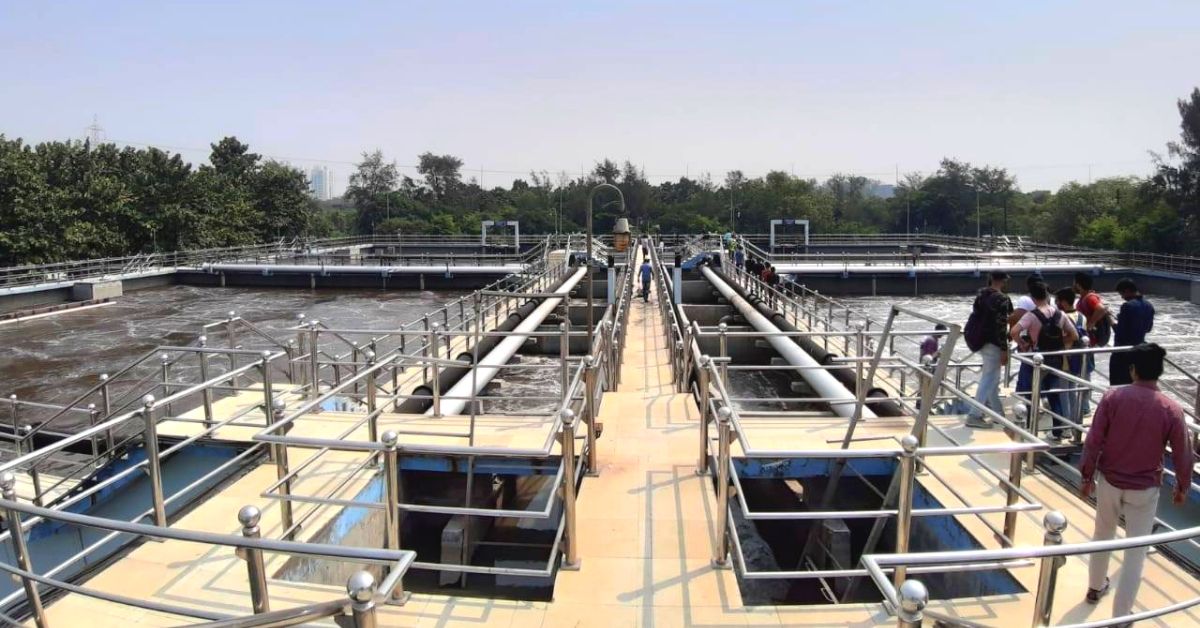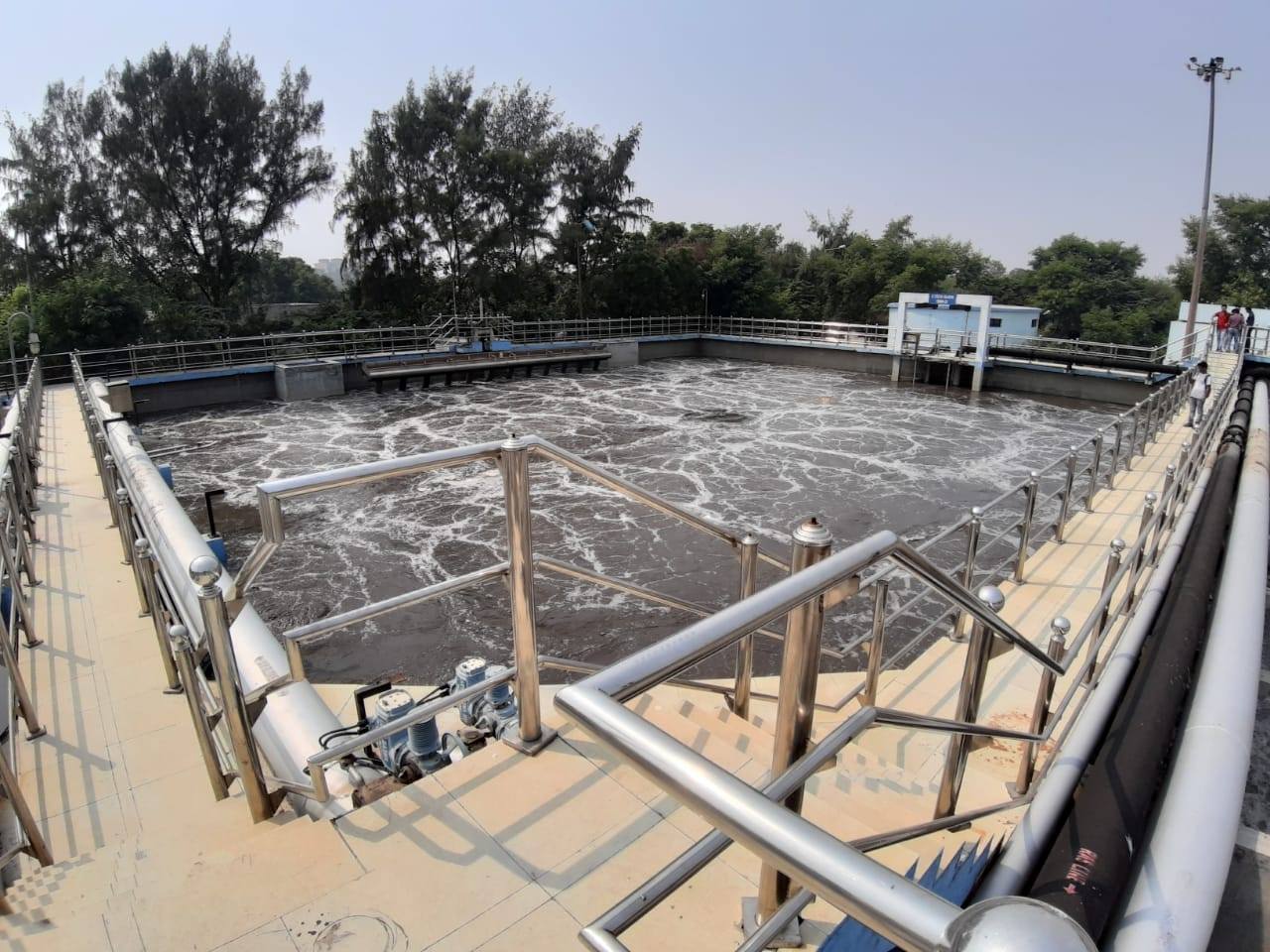Noida to Become Zero-Discharge City, Will Treat Wastewater & Supply It To Homes
Ensuring that no untreated water is released into the Yamuna, the Noida Authority will now treat 100 million litres of sewage water a day to cater to the increasing number of high-rise apartments, biodiversity parks and green belts!

How do you save water and ensure at the same time that the sewage coming out of your residential complexes do not pollute either the groundwater or the precious water bodies?
Well, Noida seems to have the answer for the time being. This city in Uttar Pradesh is well on course to become zero sewage discharge city. Earlier this week, the city’s municipal body, the Noida Authority, had announced that its massive sewage treatment plant in Sector 168 has raised its capacity from 50 million litres per day (MLD) to 100 in an attempt to cater to a growing number of high-rise apartments.
The treated water in this Sector 168 plant will pass through 20 km of pipelines to irrigate parks and other “green areas” of neighbouring Sectors instead of dumping untreated water into the Yamuna river. In fact, the Sewage Treatment Plant (STP) was set up in Sector 168 primarily to facilitate the dumping of only treated water in the polluted river.
“We decided to reuse the treated water for irrigation purposes in the Biodiversity Park located in Sector 91 as well as other green areas located in sectors 84, 85, 86, 91, 93, 137, 138, 140A, 142, 143, 143A and the green area along the Faridabad-Noida-Ghaziabad (FNG) Expressway. The recycling and reuse of waste water is an important aspect of water management, which provides a way to increase the available water, while also preventing the pollution of water bodies by sewage that is otherwise dumped into them untreated,” said Rajeev Tyagi, General Manager of the Noida Authority, speaking to the Hindustan Times.

As per reports, the water is being transported by pipelines measuring 90mm to 400mm in diameter and 20 km in length, from the Sector 168 STP to the nearby green areas. Prior to this initiative, the authorities would irrigate these green patches by extracting groundwater.
“With this, Noida would not only achieve the ambitious target of recycling all its STP waste but also help in reducing dependence on groundwater as well as fresh water for horticulture purpose,” he told The New Indian Express.
Today, Noida has a total of six STPs across Sectors 54, 50, (two each) and 123, 168, with the capacity to treat a total of 231 MLD of sewage, which is beyond the 175 MLD the city currently generates. However, a recent study by IIT-Roorkee in 2016 has estimated that by 2021, not only will this city’s population rise from 10 to 25 lakhs, but the amount of sewage it will generate will be around 310 MLD.
Also Read: Old Newspapers Piling Up? Noida Woman Lets You Exchange It for Plants!
“We aim to ensure that Noida reduces its dependency on ground water/fresh water for horticulture purposes and does not discharge any waste water into the Yamuna,” said one Noida Authority official to the Times of India. With a polluted Ganga, Yamuna and rising population, the stress on the city’s groundwater has increased rapidly in the past decade.
According to reports, the city’s groundwater table has been falling precipitously by 1.5m ever year for the last five years. Recycling sewage water will reduce the stress on the groundwater table. The total demand for water in Noida is about 332 MLD, of which 56 per cent comes from the Ganga, while groundwater takes care of the rest. However, rising silting on the Upper Ganga canal last year forced the city’s authorities to deliver water to its residents using tankers. It’s imperative for the city to lessen the load on its groundwater.
“As per the latest Central Pollution Control Board report, at least 60 per cent of sewage generated in urban India is being dumped in rivers, lakes, wells and other water channels, polluting the water bodies and contaminating fresh water sources. Partially treated or untreated sewage is responsible for a large part of the pollution in streams and water bodies. Therefore, by not dumping untreated waste into water bodies in Noida, we help protect natural water bodies in the city,” said a senior official at the Noida Authority, speaking to the Hindustan Times.
(Edited by Saiqua Sultan)
Like this story? Or have something to share? Write to us: [email protected], or connect with us on Facebook and Twitter.
If you found our stories insightful, informative, or even just enjoyable, we invite you to consider making a voluntary payment to support the work we do at The Better India. Your contribution helps us continue producing quality content that educates, inspires, and drives positive change.
Choose one of the payment options below for your contribution-
By paying for the stories you value, you directly contribute to sustaining our efforts focused on making a difference in the world. Together, let’s ensure that impactful stories continue to be told and shared, enriching lives and communities alike.
Thank you for your support. Here are some frequently asked questions you might find helpful to know why you are contributing?


This story made me
-
97
-
121
-
89
-
167











